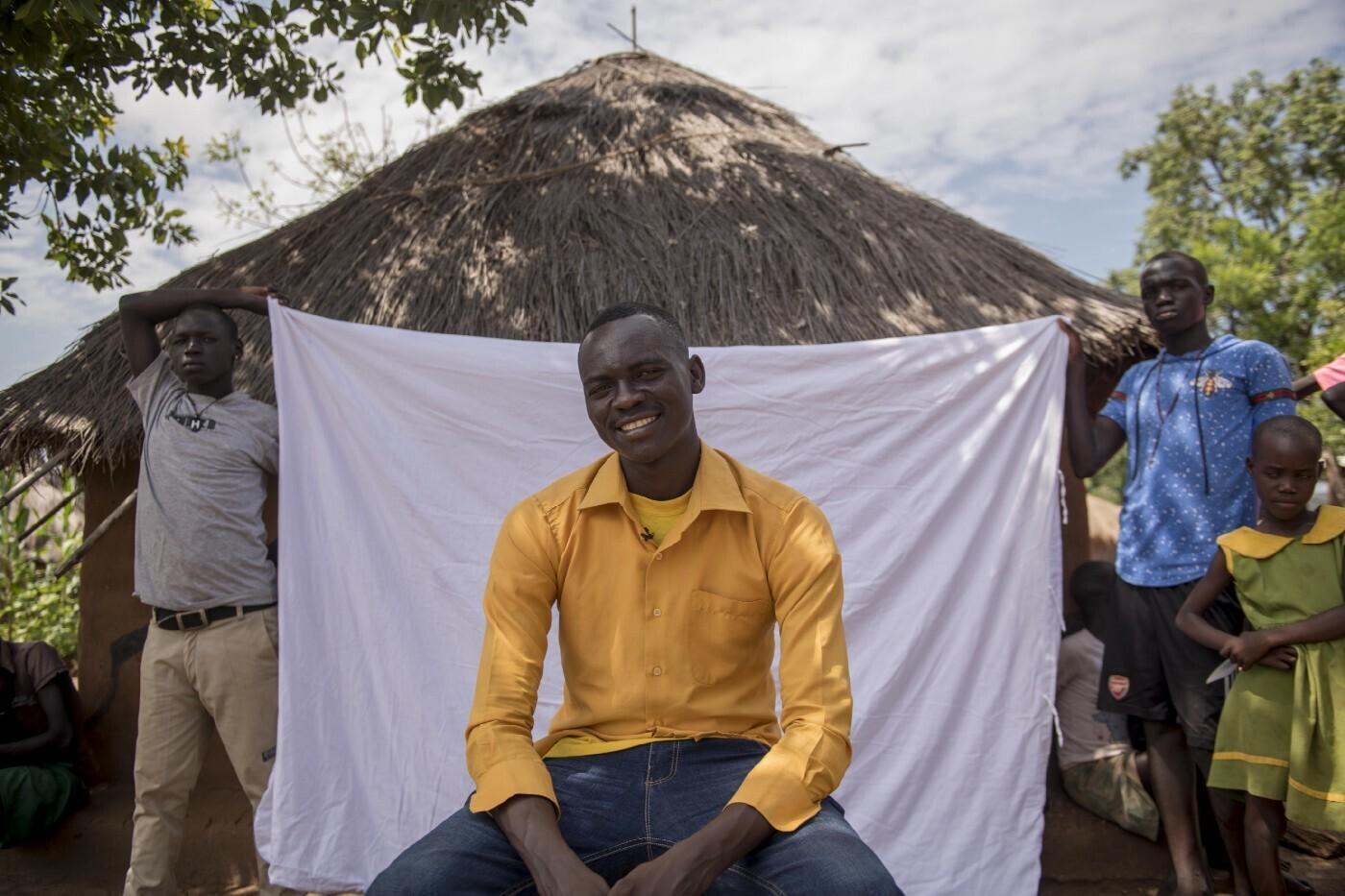A cockerel crows, letting out a high-pitched guttural shriek, to interrupt Malish James’s train of thought. He can’t remember exactly what he was just about to say but he’s certain it was something to do with increasing the engagement on his Instagram. While that’s not exactly something unusual for an influencer to be talking about on a Wednesday afternoon, Malish James has got a story that sets him a world apart from most of your favourite IG feed fillers. In fact, it sets him roughly 3,784 miles apart from the west London flat that I’m Zoom-ing him from.
Malish lives in the Bidibidi Settlement – a refugee camp located in northwestern Uganda that’s home to over 270,000 South Sudanese refugees. At one point in time, it held the distinction of being the largest refugee settlement in the entire world. As a WFP Storyteller, Malish is just one of the many refugees that was trained by the World Food Programme in journalism, photography, videography, and social media. It’s that training which has allowed Malish to show us life in Bidibidi Refugee Settlement through his eyes. And allowed for people like me to scroll through his feed while I binge-watch episodes of Bridgerton. Using nothing but the camera on his smartphone, Malish captures the stories and lives of the refugee mothers, children, and all of those who live in his local community. As well as his Instagram (@malishj104), Malish also runs a Facebook blog called Daily Refugee’s Stories.
“I think that, among all the people that were trained, I was the one who took it most seriously. Because doing this is a voluntary thing, it’s a lot to do with your own will and determination,” says Malish when I ask him, post-cockerel crow, how he has benefited from the WFP’s Storyteller initiative, “other people might have seen it as a minor thing and dropped it. But I felt it was an important thing to do, so I stuck with it. And the more I kept on doing it, the more I became engaged in many things that I never knew before. I've been introduced to journalists from the BBC and journalists from Portugal.” He’s even been introduced, via the magic of Zoom, to food and recipe website editors.
Malish left his home in South Sudan, the country where he was born and raised, and became a refugee on the 6th of August 2016. “The situation in South Sudan, at the time, was bad – really bad,” says Malish, “we had to run out because the civil war had already killed thousands of people and those who weren't already killed were suffering from famine, hunger, and food insecurity. That was what forced us to flee to Uganda. Food is life and without it, you simply cannot live.”
Passing dead soldiers and civilians along the way – some he recognised, countless others that he didn’t – Malish walked kilometres to reach the relative safety of Uganda. It might not have been home, but Malish admits that he felt an almost instant change within himself when he crossed the border. “When we entered Uganda, we felt free."
Food, that life-giving stuff we all know and love, was provided by World Food Programme workers along with a sense of security and peace of mind that Malish wasn’t afforded back home. Though, that’s not to say that going through hell and back had stopped Malish’s refined palate from working. “When we came to the border, we got given a plate of beans and maize and grains. That was ready-prepared for us when we arrived – though it was not as well-prepared as one would imagine, if you know what I mean! The beans were watery and there was very little oil. But we ate it and we were grateful because it was the first thing we’d eaten in a long time. It may not have been delicious but it really helped so much.”
